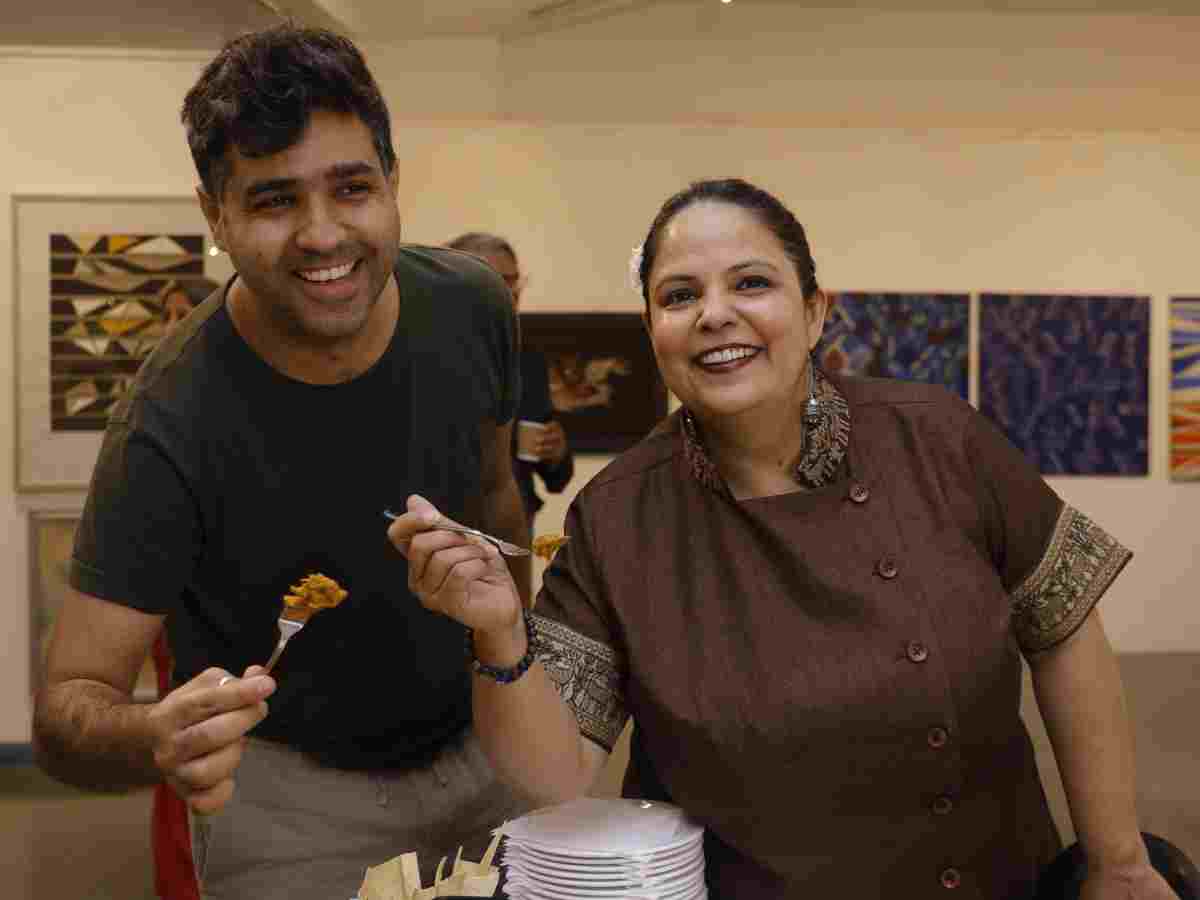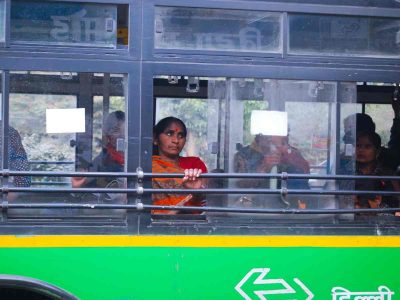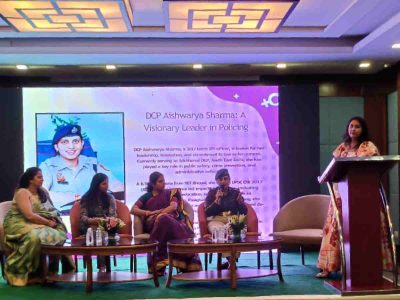Delhi: As the celebrations for Pride month are underway all over the world, New York-based Surbhi Sahni, the first Indian woman queer chef to be awarded a Michelin star is happy to be in the city of her birth to share her life’s journey and a queer perspective on food.
Today, she is hailed as a visionary who has made a name for herself by fusing her passion and knowledge of Indian cuisine and bringing it to American diners. Surbhi is in Delhi as part of a recent exhibition by Engendered Delhi, a transnational arts and human rights organisation with a special focus on gender equality, and India International Centre to explore the advent of abstraction as an emergent artistic practice.
The exhibition titled ‘Set Adrift on Memory Bliss’ brought together seven influential artistic practices and Surbhi’s father SK Sahni’s prolific body of work spanning five decades. It works towards a broad “cross-disciplinary examination of abstraction’s inherent radicality”, the “oppositional and critical possibilities” around creativity, the “queerness of time”, and the “marginalities of age”. It includes paintings, drawings, print, glass-blown sculptures, AI explorations, queerness, site-specific installations, recordings, music, food, and art, said curator Myna Mukherjee, adding that getting Surbhi involved in the project was a “bonus”.
Also Read: Businesses harness the rainbow, flourish during Pride Month
Surbhi, who holds a bachelor’s degree in hotel management from India’s Manipal School of Hotel Administration as well as a master’s degree in food studies and food management from New York University, has carved out an identity for herself as a queer South Asian woman who came out late in life (after her marriage and a daughter Saumya, who is now 21).
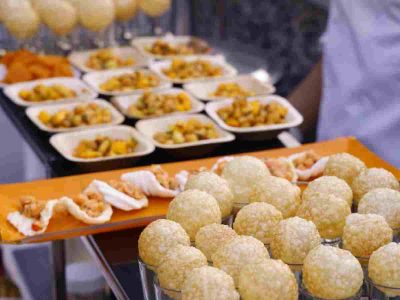
Now divorced, Surbhi strives to be inclusive in everything she does inside and outside the kitchen. Her flavours have often been described as diverse and unique. That includes challenging perceptions of “authentic” Indian cuisine and centring homestyle regional cooking of all kinds. After stints in renowned New York restaurants like Devi and Tamarind, she launched Tagmo initially as an online mithai venture in 2019, using Indian ingredients to create bite-sized sweets that would be season-specific. In June, Surbhi put out a special Pride collection with colourful blueberry lemon curd barfi and rose-coconut barfi. Later Tagmo became a brick-and-mortar restaurant (which has now closed down) that specialised in dishes from all over India, such as khatta meetha chaat, an aromatic salad from Delhi made with jicama, cucumbers, and chickpeas; gushtaba, a Kashmiri-style lamb meatball; and meen varuval, a Tamil rice-crusted fried flounder with red chiles and coconut chutney.
Continuing to run Tagmo online, she says, “I want people to feel the impact of our flavours; I hope it inspires other female, queer, or Person of Colour (POC) to do something they’ve always believed in and take that first step.”
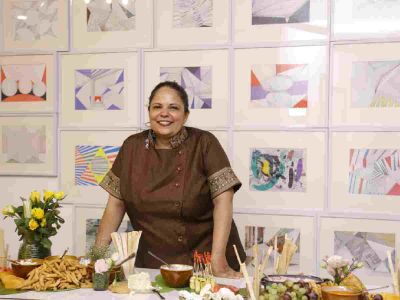
Surbhi also talked about the challenges she has faced. Life in India was confusing, she says, since being queer was not something to celebrate, especially in the 80s and 90s when she was growing up. It was something she herself did not really understand.
“I didn’t have any friends in India who were from the community, and anyway, no one was open about it. It was also a time when homosexuality was criminalised, but I always felt different and was bi-curious. It was only a few years ago that I recognised who I was and wanted to understand the LGBTQ community as well as wanted to be seen and understood myself. Being queer is not just about sexuality. It means being free to express yourself any way you want. I am lucky I came to New York. It gave me an opportunity to be my true self.”
When it comes to a queer perspective on food, Surbhi says you must do whatever makes your soul happy. As a chef, she is big on home food. She says, “My aunts were great cooks of Punjabi food. Now, I play with colours, ingredients and cuisines from all over India. I love regional food, and right now, I am having a lot of fun with Bihari food. The West is super global and very accepting of flavours.”
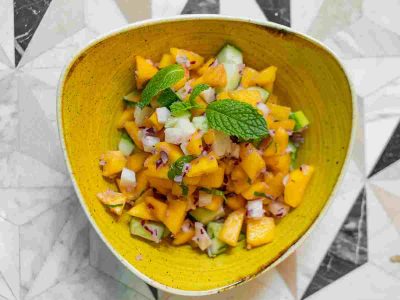
“When I started becoming popular, I became known as the Mithai Queen. The transmission of recipes over generations and the technical aspects of mithai fascinated me and me. I was the first woman Indian pastry chef in New York. I became known for my perspective on home-style Indian cooking. I began doing fun Indian mithai, fusion fun, a very rainbow concept with food in 2008, and it was very well accepted.”
Also Read: Delhi: JNS lacking facilities, but massive facelift on the cards
At the event, Surbhi partnered with Chef Druv Oberoi of Olive to put together a rainbow-hued grazing table with a queer perspective on food. It was laden with adventurous and colourful dishes like beetroot nigella pachadai, charred scallion mooli chutney, burrata dahi poori with pickled mango chutney, duck achchari kachori, rainbow sup, and a savory mango tamarind and cranberry dessert. Chef Druv added, “The queer view of food is to play with colours of the rainbow – it is both healthy and visually inviting. It is an expression of yourself. One is free to do whatever one likes. It is a very liberating concept. For instance, you can have a fusion of Japanese and Indian cuisine like the Duck Kachori.”
“Queer people are artsy and very creative and bring that to food. We need to celebrate this, and finally, this is happening in the Indian food industry,” he also said.
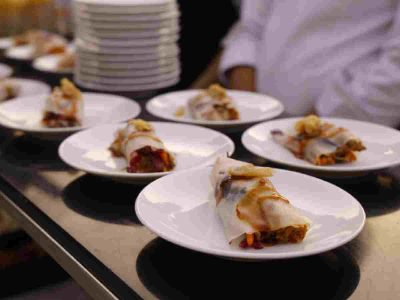
Surbhi’s creed is to be true to oneself. As she puts it, “While making any decision, be it related to career or sexuality or creative choices, try and embrace yourself and hear your inner voice as much as you can. Despite the hurdles, it’s amazing being a woman in business.”
“Being able to build my own identity and define who I am for myself is truly freeing. It’s important for me to bring all the facets of who I am to my business and watch how it attracts others like me. I’ve built a brand that is proudly queer and women of colour-run, a rarity in all industries!”

